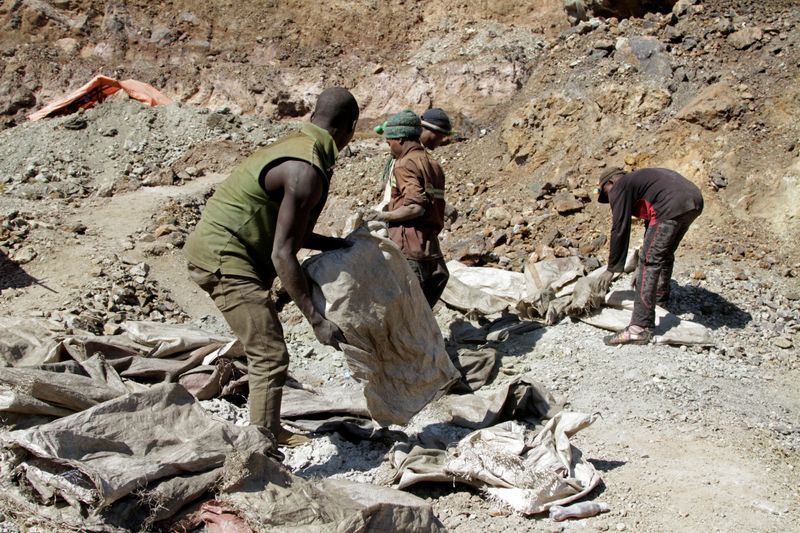By Helen Reid
JOHANNESBURG (Reuters) - A programme to monitor and improve artisanal cobalt mines in Democratic Republic of Congo will double the number of mining sites it covers this year through a partnership between RCS Global and the Responsible Minerals Initiative.
RCS Global, a company in Berlin that audits supply chains, started the Better Mining programme in 2018, collecting data on cobalt mine sites in Congo and giving mine operators "corrective action" plans when mining practices were found to be unsafe.
Teaming up with the Washington, D.C.-based RMI, a part of the Responsible Business Alliance, will allow the programme to grow from three sites to six this year, and to 12 or more sites by 2023, the companies said in a statement on Tuesday.
The aim is to convince end-users of cobalt - a metal used in smartphones, computers, and electric car batteries - that artisanal mine sites, often associated with child labour and dangerous working conditions, can be transformed into responsibly-managed, viable sources of cobalt.
"We are determined to unlock the demand for responsibly produced ASM cobalt," Leah Butler, vice president of the Responsible Business Alliance, said. "We encourage companies along the value chain to actively engage in this effort."
While the programme does not trace cobalt from mine to export, the daily data produced on the ground about risks and working conditions and the ability to monitor progress in a database have attracted interest from industry.
RCS Global's pilot programme was partly funded by Volvo Cars and Huayou Cobalt, and the expanded programme will receive support from RMI members which include the world's biggest carmakers and technology firms.
"We can go to the industry and say look, this is working, we can demonstrate it," Nicholas Garrett, CEO of RCS Global, said in a phone interview. "What's needed now is more support to help us scale up."
Support for tracing schemes is likely to be complicated by the COVID-19 pandemic, which has devastated the global economy and is predicted to have a severe effect on the auto industry, as well as on revenues in Congo, the world's biggest producer of the metal.
Artisanal miners account for around 20% of the country's cobalt production, so the industry has an interest in helping improve these mine sites to open up new sources of cobalt they can buy without fearing a tainted supply chain.

Garrett estimated the programme reaches 5,000 miners, although the numbers fluctuate significantly with price, and expanding to 12 mine sites would likely increase that number to more than 20,000.